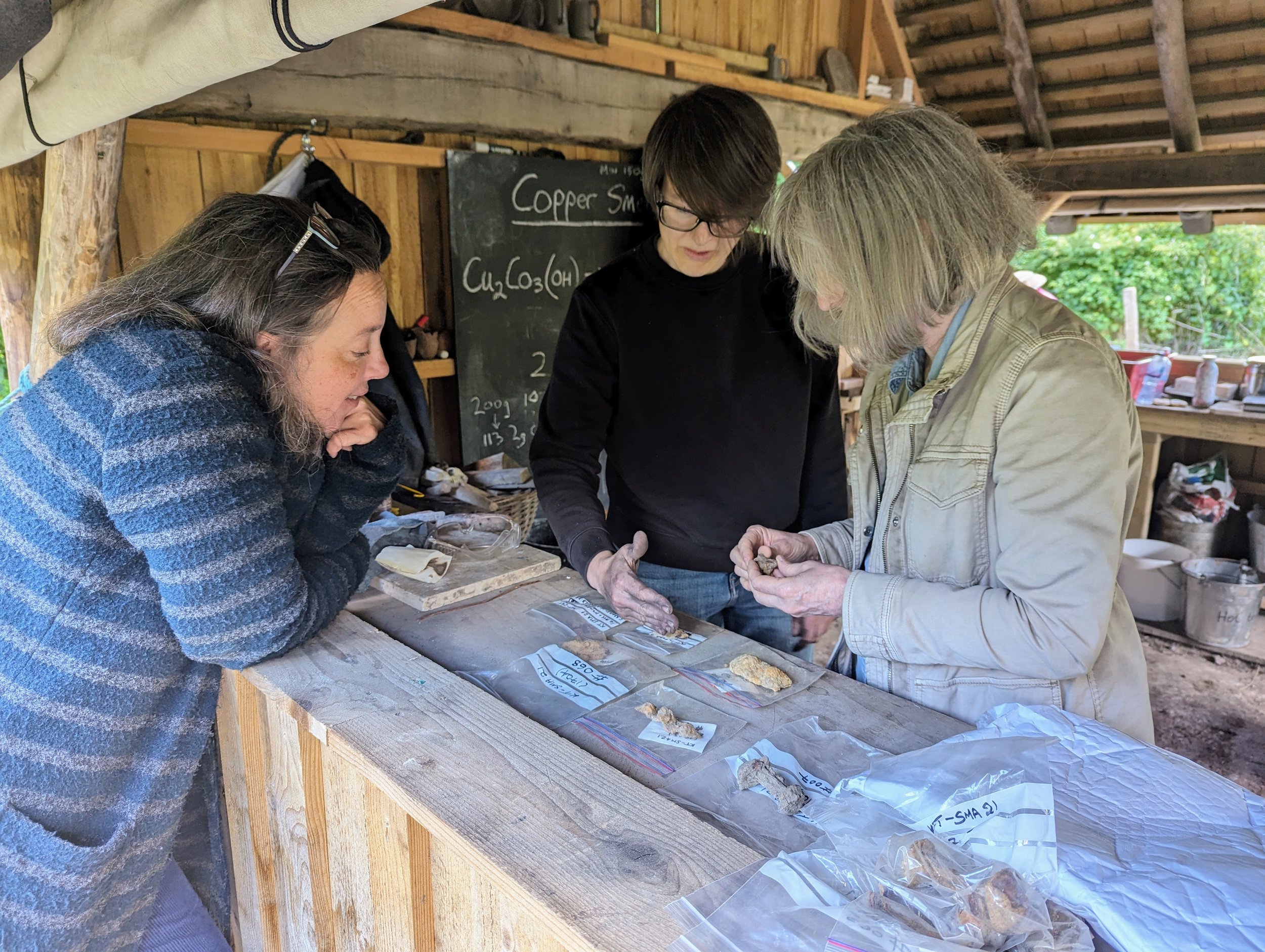“Being on site is priceless. It is far better than reading about these processes in any library.”
The Friends of Butser Ancient Farm are proud to support the next generation of learners, makers, and researchers through our bursary programme.
Our bursaries help schools and students experience the wonder of hands-on archaeology, history, and craft, while also supporting experimental research projects that shed new light on the past.
Each bursary has its own story - from legacies honouring some of Butser’s most influential figures, to new grants designed to spark curiosity and support future archaeologists.
If you would like to know more about our bursaries, please contact us:
You can support our bursary funds using the donate button below.
Our two student bursaries - the Alan and Marilyn Tatlow Bursary and the John Bushrod Bursary - are awarded in memory of individuals who continue to inspire us.
They are open to students of archaeology or a closely related field at any stage of their academic career, including independent scholars conducting research intended for publication. These bursaries offer financial support up to £500 to two students annually conducting experimental research which aligns with the Farm’s key areas of interest, including (but not limited to) experimental archaeology, classical archaeology, archaeological science, archaeobotany, building construction, archaeomaterials, ancient crafts, and associated technologies. Proposals incorporating a public outreach component are particularly welcomed.
This support is open to students at different stages of their degree studies; and in conjunction with a number of institutions, with which Butser Ancient Farm has a relationship.
Alan and Marilyn Tatlow were among the first volunteers at Butser, and involved in the creation and development of the Friends’ charity.
A retired local head-teacher, Alan was part of the Education Team for many years, and was a familiar figure at weekends and open days giving demonstrations and talking to visitors.
John Bushrod was a hands-on volunteer who brought his enthusiasm and passion for the countryside to Butser.
John loved the fields around the site and was a fount of knowledge about our cereal and food crops, which he delighted in sharing with the public, never missing an opportunity to run an impromptu workshop with visitors.
In addition to our student bursaries, the Friends also support younger learners and emerging researchers through two further awards: the Maureen Page Schools Bursary and the Will Wooton Grant.
Our newer bursaries help reduce barriers for school pupils of all backgrounds to experience the wonder of Butser, and support undergraduate students taking their first steps into experimental archaeology, helping them develop projects that demonstrate the magic of hands-on history, and bring the past vividly to life.
Together, these bursaries nurture curiosity, creativity, and discovery from the classroom through to undergraduate research and beyond - keeping learning, inclusivity, and inspiration at the heart of Butser’s mission.
The Maureen Page Schools Bursary helps schools facing financial barriers to bring pupils for an unforgettable day of hands-on history. Every year, thousands of children visit Butser, and for many it’s a truly transformative experience. This bursary aims to ensure no child misses out.
Maureen’s tireless passion for education and inclusivity helped shape Butser into the extraordinary place it is today - a place where history is not just told, but lived. We hope this new fund will carry that legacy forward, supporting visits from schools who might otherwise struggle to cover the cost of travel. By helping to bridge the gap, we can ensure no child misses out on the chance to explore the past, discover ancient crafts, and be inspired by history, science, and the natural world.
It’s a meaningful and lasting tribute to Maureen’s values.
The Will Wooton Grant is awarded to promising students of archaeology, with a focus on early-stage researchers developing projects with strong experimental or craft-based elements.
It supports work that explores the practical skills, time, and resources involved in ancient technologies - from textiles and tools to construction and material culture - helping to bring the realities of past lives vividly into the present.
The grant helps nurture the next generation of experimental archaeologists by giving them the chance to test ideas in practice.
Experimental Archaeology
The video below introduces experimental archaeology and explains why, as a student, it can be invaluable to undertake as part of your studies.
